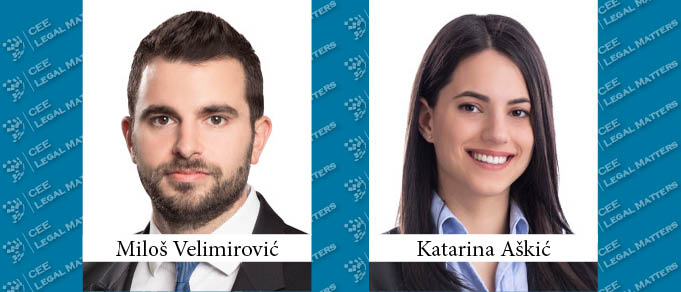In October 2020, the Ministry of Finance of the Republic of Serbia published the first draft of the Law on Digital Property (“Draft“) and put it for open discussion. Below we present you with a short overview of the proposed Draft:
Virtual Property and Virtual Currency
The virtual property represents a digital record of value that can be digitally bought, sold, exchanged, or transferred and that can be used as a medium of exchange or for investment purposes. On the other hand, the digital property does not include digital currency records that are legal means of payment and other financial assets that are regulated by other laws.
Virtual currency is defined as a type of digital property that was not issued and which value is not guaranteed by the central bank or other public authority, which is not necessarily tied to legal means of payment and does not have legal status as money or currency but is accepted by individuals or companies as a medium of exchange, so it can be bought, sold, exchanged, transmitted and saved electronically.
It is an interesting fact that virtual currencies cannot be recognized as a monetary share in a company. However, non-monetary shares in a company may be in digital tokens that are not related to providing services or execution of work. In the case of a general partnership and limited partnership, there is an exception when digital tokens can be used for providing services or in the execution of work.
Service Providers related to digital property
The Draft prescribes that the provider of services related to the digital property has to be a company registered in Serbia. These companies can perform services of purchasing and selling digital assets for cash and/or funds in the account and/or e-money, services of exchanging digital property for other digital property, managing the portfolio of digital assets, etc. In such a case, the legal companies must obtain the official license from the competent authority in order to provide these services.
On the other hand, the Draft defines that a counselor related to digital property can provide exclusively digital asset advisory services. This activity can be performed by companies, entrepreneurs, and individuals and they are not obligated to have an official license from the competent authority.
Institution of Whitepaper
The Draft regulates the institute of the whitepaper (“beli papir”) as a document that is published during the issuance of digital property, which contains data on the issuer of digital property, the digital property itself, and risks associated with digital property in order for investors to make decisions. Of course, all the information contained in the whitepaper must be true, complete, and clarified and it must not mislead to a wrong investment decision.
Pledge
The Draft specifically prescribes the possibility of conducting the right of pledge on the digital property, the mandatory elements of the pledge agreement, the necessary written or electronic form, but also the possibility of conclusion of the so-called “smart agreement“. The right of pledge is acquired by registration in a pledge register which is managed by a licensed provider of services related to digital property.
Supervision
The supervisory authorities are the National Bank of Serbia and the Securities Commission of Serbia. The Law on Digital Property is expected to enter into force 6 months after its adoption in order to allow sufficient time for digital property service providers to coordinate their business activities. Also, it is defined that bylaws will be adopted within 3 months from entering into force of the future law.
Serbia should become one of the few countries that cover this area with a special regulation. We can expect that the adoption of this law will allow business not only to enter the digital property market but also more easily finance innovative ideas and also improve liquidity.
This text is for informational purposes only and should not be considered legal advice. Should you require any additional information, feel free to contact us.
By Milos Velimirovic, Partner, and Katarina Askic, Junior Associate, Samardzic, Oreski & Grbovic



